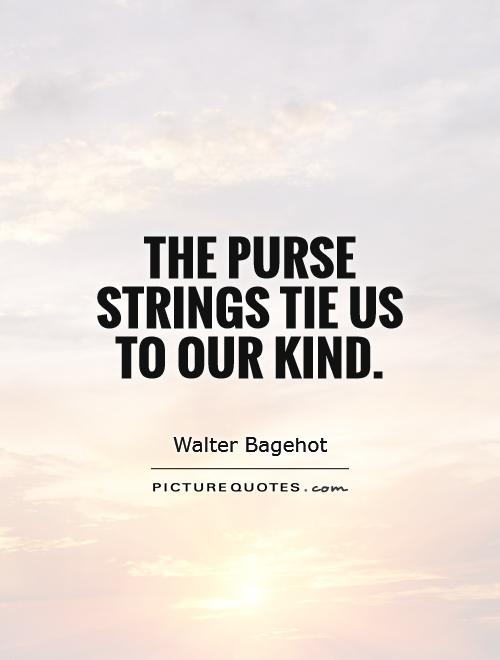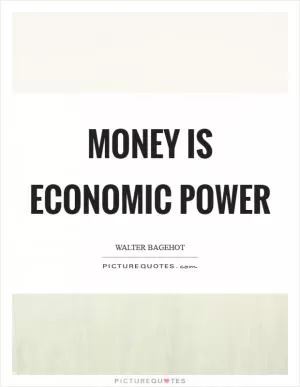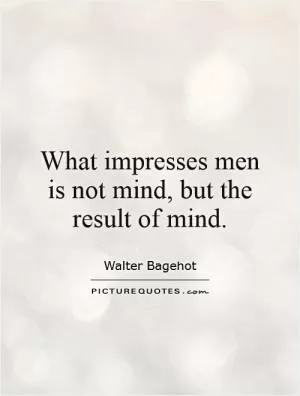The purse strings tie us to our kind

The purse strings tie us to our kind
Walter Bagehot, a prominent British economist and journalist, is often associated with the idea that "the purse strings tie us to our kind." This concept can be interpreted in various ways, but at its core, it suggests that our financial relationships and obligations play a significant role in shaping our social connections and interactions.Bagehot believed that money was a powerful force that influenced human behavior and relationships. In his view, the way we handle our finances and the economic transactions we engage in can either bring us closer to others or create distance between us. The "purse strings" symbolize the financial ties that bind us to our fellow human beings, whether through shared economic interests, mutual obligations, or financial dependencies.
One way in which the purse strings tie us to our kind is through the concept of reciprocity. When we lend money to someone or receive financial assistance from others, we create a bond of obligation that connects us to them. This sense of indebtedness can foster a sense of solidarity and mutual support within a community, as individuals feel compelled to help each other out in times of need.
Additionally, the purse strings can also influence our social status and relationships. In many societies, wealth and financial resources are seen as markers of social standing and influence. Those who control the purse strings often wield power and authority, which can shape the dynamics of social interactions and relationships. People may be drawn to those who have financial resources or seek to align themselves with individuals who can provide economic opportunities or support.
Furthermore, the purse strings can also be a source of conflict and tension within relationships. Disagreements over money, financial disputes, and unequal distribution of resources can strain interpersonal connections and lead to resentment and discord. Bagehot recognized the potential for financial matters to create rifts between individuals and emphasized the importance of managing economic relationships with care and consideration.
Overall, Bagehot's idea that "the purse strings tie us to our kind" highlights the complex ways in which money and finances shape our social connections and interactions. Our financial decisions and relationships can have a profound impact on our relationships with others, influencing the bonds we form, the power dynamics at play, and the potential for both cooperation and conflict within our communities.












 Friendship Quotes
Friendship Quotes Love Quotes
Love Quotes Life Quotes
Life Quotes Funny Quotes
Funny Quotes Motivational Quotes
Motivational Quotes Inspirational Quotes
Inspirational Quotes